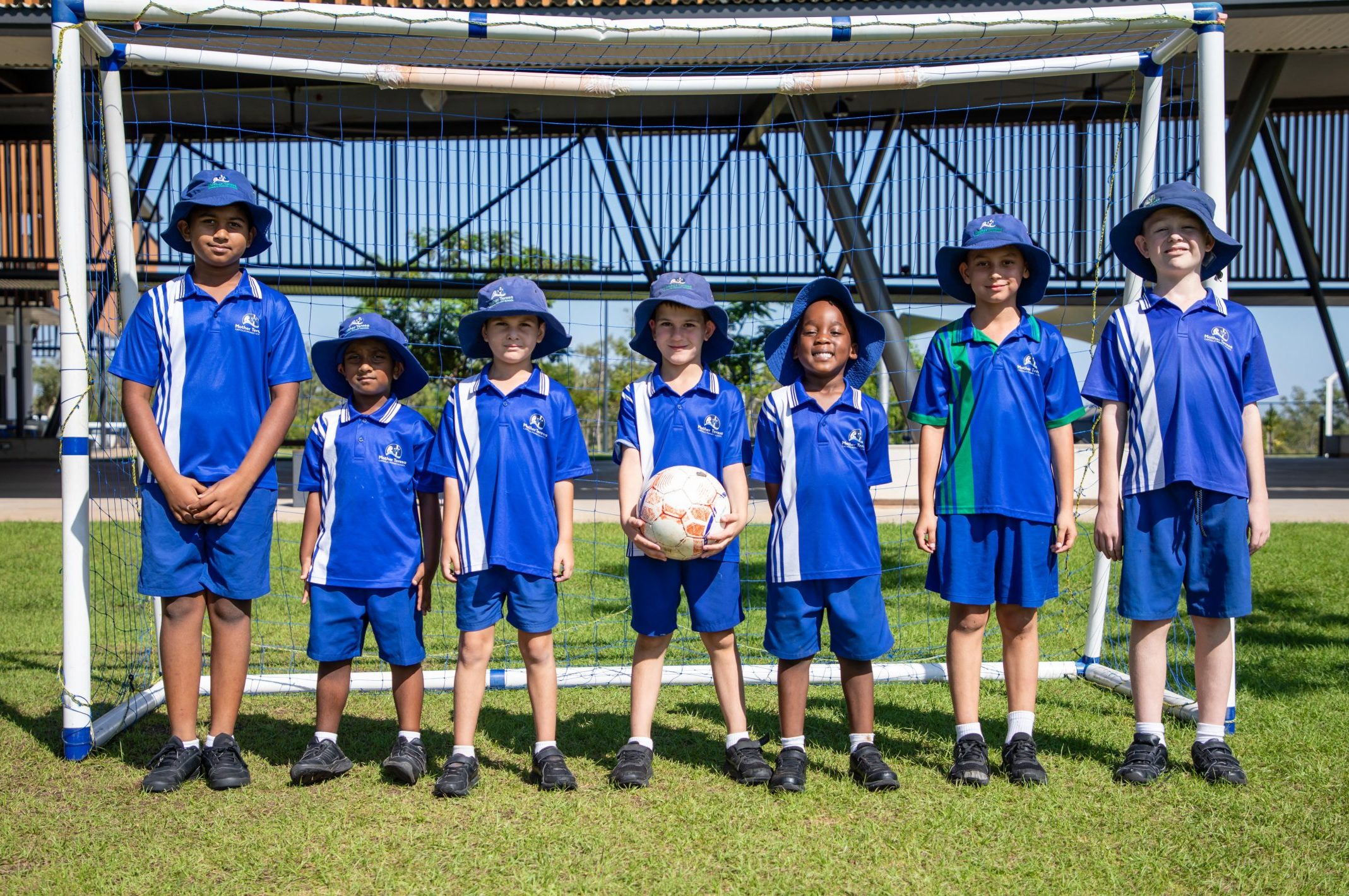CHECKOUT OUR DAILY ROUTINE
Students are not permitted in classrooms unless a teacher is present – classroom doors are kept locked.
Morning Supervision
Playground supervision will commence at 7:55am, it is encouraged that students do not arrive at school before this time. Students at school before 7:55am will be sent to Before School Care, the casual rate will be charged (as of Term 1, 2020).
Lunch and Recess Time
There will be teacher supervised play areas during recess and lunch. For recess and lunch, students sit and eat inside their classrooms under the supervision of the class teacher.
Afternoon Supervision
Students who have not been collected by 3.05pm will be sent to afterschool care to ensure supervision. Once your child has been signed into After School Care, the casual rate will be charged (as of Term 1, 2021).
UNIFORMS
In the spirit of the vision and mission of our school community, we are committed to being partners with our parents and families in pursuing the well being, learning and character development of our students. School policies and procedures are directed towards the supporting of these goals. The social norms of the school are fundamental in establishing the environment in which these goals are pursued. The school uniform policy assists in creating a suitable educational environment at Mother Teresa.
Uniforms also promote equity in that individuals are not distinguished in terms of their economic or social status – all are valued for who they are rather than what they have. Besides obvious safety issues in some learning activities (e.g. HPE and sports), the wearing of jewellery is discouraged for similar reasons of equity.
Mother Teresa’s school uniform provides the students with a sense of unity and pride and plays an integral part in participating in the life of the school. It enables parents to avoid discussions about clothing suitability. Uniforms can be purchased from the school. The school has a policy that school hats are worn by children whenever they are outdoors, with a strict ‘No Hat, No Play’ understanding.

School Hat
All students are required to wear their school hat throughout the year at break times and when participating in outdoor activities. The school hat should be worn to and from school. The school has a “No Hat – No Play ” Policy during recess and lunch breaks meaning if a student does not have their hat at school, they are required to be in an allocated shaded location as directed by a staff member.
Jewellery
A wrist watch may be worn and a thin gold or silver chain with a cross, but no other form of jewellery is acceptable. Students who have pierced ears may wear one pair of ‘sleepers’ or ‘studs’ only.
Hair
Hair on any student (male or female), that is longer than the bottom of the collar, is to be tied back at all times whilst at school. This is a safety issue as well as a health issue.
- Hairstyles should not attract undue attention or be extreme in presentation. If hair is short it should be neat, clean and off the face, particularly out of eyes. Hair longer than the bottom of the collar must be tied back and secured. No shaved heads (or parts of head) will be permitted (for example, ‘Mohawk’ style).
- Hair colour must be in natural tones. Brightly coloured hair or extreme highlights are not acceptable. Individual clumps or patches of colour in the hair are not acceptable.
- Students will be instructed to correct hair colouring that does not fall within these guidelines.
- Hair needs to be neat and tidy at all times. Blue and White ribbons are acceptable
Nail Polish and tattoo stickers are not to be worn at school
NAMES WILL BE REQUIRED ON ALL CLOTHING – Especially hats, shoes and other clothing students might remove at school.
STUDENT ABSENCE
Absenteeism / Lateness
Parents will be required to phone the school office on 08 7969 5600 or submit an absentee form via Skool Bag before 9.30 am to advise the school of their child’s non-attendance or lateness for that day. Late students or those leaving early must sign in and out at the front office. Students will be issued with a ‘late’ slip to be given to the class teacher.
Leaving Early
No child will be allowed to leave the grounds during school hours, unless a written explanation is given to the teacher or Principal, and the child is picked up by a parent or person designated by the parent through the front office.
Custody Agreements
This is important where court directed custody judgements affect students. The Principal should be advised in writing and the information will be treated confidentially and with sensitivity.
Appointments
Appointments with the Principal should be confirmed through the office prior to the intended meeting dates. However, in case of emergency, parents will be very welcome to meet with the Principal or in the Principal’s absence, the Deputy Principal, without prior arrangements depending on availability.
MEDICAL INFORMATION
Every care will be taken of your child/children whilst they attend Mother Teresa Catholic Primary School.
Health Check Program
Hearing and vision screening of Transition children will be conducted by Territory Health Services.
Immunisation Records
A copy of a student’s immunization record is to be supplied with Enrolment Form.
Medication
At times, it will be necessary for medication to be taken during school hours. When this occurs, please send the correct dosage, and signed written instruction from a doctor to the school office (dosage, time to be taken, etc).
Parents must notify the school if their child is on regular medication for a specific reason, for example: asthma, epilepsy, diabetes.
Allergies (Anaphylaxis):
If children at school have a severe allergic reaction to foods, a letter will be sent to the required year levels to inform at the beginning of each school year and periodic reminders will be included in the school newsletter. For some students, any exposure to certain foods may cause a life-threatening allergic reaction that requires emergency medical treatment. To reduce the chance of this occurring, we ask that you do not send any products that contain these foods to school with your child that will be eaten in the classroom. If your child has eaten these particular foods before coming to school, please be sure your child’s hands and face have been thoroughly washed before entering the school.
Head Lice
Please regularly check your child’s hair. Attached is a very informative link on head lice and their removal. If head lice are found in your child’s hair, you will be required to come and collect your child and treat their hair before they are able to return.
Sickness and Injury at School
Sick children should not be sent to school. They may pose a risk to the health of others and may increase the severity and length of their own illness.
The school will have a sick bay where children who are hurt or become ill at school may lie down quietly. If the child is too ill to be at school or a serious injury occurs, parents will be contacted.
Should we be unable to contact parents we reserve the right to have the child taken immediately to the hospital.
PLEASE ENSURE YOUR CURRENT EMERGENCY CONTACT NUMBER IS ON ALL SCHOOL RECORDS.
A staff member with a current First Aid Certificate will carry out the administration of first aid or be available to assist in an emergency.
BUS TRANSPORTATION
Our school can be reached via BUS 236.
Please note – this is a public bus service and not run by the school. All inquiries, complaints or feedback need to be directed to the link below.
Darwin Bus Service runs public bus routes as well as school student-only buses, which service the School for students from various areas. Click on the link below to view various timetables and routes.
http://transport.nt.gov.au/public/school-bus-service/darwin
Students need to be reminded that while in uniform they are representatives of the school and should act accordingly. Polite and cooperative behavior is expected of students traveling to and from school.
PASTORAL CARE AND WELLBEING
Student safety and wellbeing are enhanced when students feel connected to their school, have positive and respectful relationships with their peers and teachers, feel confident about their social and emotional skills and are satisfied with their learning experiences at school. The wellbeing of all students is at the heart of Catholic Education enabling a learning environment which provides for the spiritual, physical, emotional, cognitive and social growth of its students and staff. Consideration of wellbeing must take place in ways which support, and are supported by, the school’s approach to learning. A whole school approach to creating safe and supportive learning and teaching communities, acknowledges the strong interconnections between student safety, wellbeing and learning.
Mother Teresa Catholic Primary School aims to:
- Build positive, tolerant and respectful relationships
- Maintain a safe, positive, caring and happy school environment.
- Create a culture where students, staff, parents and friends share responsibility for achieving a high standard of student wellbeing
- Build positive relationships between teachers, students and parents
- Ensure rights and responsibilities are known, respected and protected
- Use co-operative and restorative approaches to resolving conflict
- Promote and maintain a Catholic educational environment that fosters Gospel values
How do we do this?
- A whole-school framework-‘ Be You ‘
- Mind Up Program embedded throughout the school in each year level – Social and Emotional Program
- Positive involvement with parents-class parent contacts through Seesaw, Skoolbag and informal teacher/parent interactions
- Positive student-teacher relationships
- Class and small group social and emotional activities ( prayer circles, community circles)
- Structured lunchtime activities
- Student Leadership and Development
- Community service opportunities
- Development of school pride and high expectations
- Zones of Regulation
- Access to School –based counsellor

